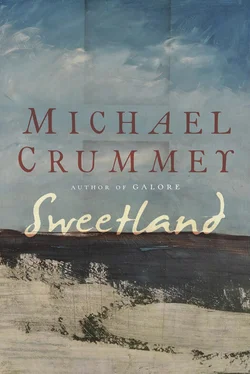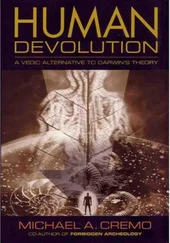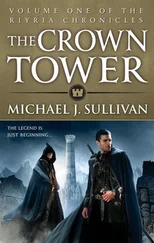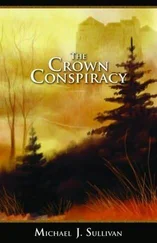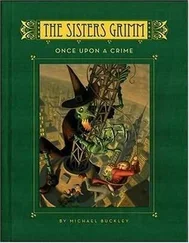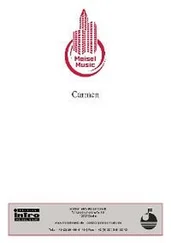He was on the stretch of path over bald rock that ravelled out within a few feet of the headlands, the ocean roiling black below. Not hard to imagine Jesse losing his way here in the fog. The wind whipped at the gas can Sweetland carried, wrenching his shoulder with every gust, threatening to take him over the edge. He stopped long enough to tie a length of string to the handle and hauled the red container over the ground behind him like a sledge. He guessed he was half an hour’s trudge from the ATV and he carried on with his head down against the driving sleet, stopping now and then to turn his back to the wind. He couldn’t feel the skin on the good side of his face and he winced and chewed and yawned, hoping the motion would bring some life back into the flesh.
He was two hundred yards past the ATV before he knew it, his eyes at his feet and nearly closed against the sleet. Turned his back to the wind to catch his breath, spotted the lonely machine behind him. Another fifty yards on he would have missed it altogether.
His hands were numb with the cold and he had trouble fitting the finicky nozzle on the gas container. The dog had disappeared into his coat where it had shivered itself to sleep and he kept an arm across his stomach to support its weight. Spilled a tumbler’s worth of gas trying to set the nozzle in the tank’s opening one-handed, swearing under his breath. After he filled the tank he tied the rest of the gas onto the carryall and started up the machine.
He turned into the wind and drove slow, leaning behind the handlebars for the little protection they afforded, peeking over the top now and then to be sure of the path. Grateful to be sitting down, to be conveyed. He cut across Vatcher’s Meadow, drove by the King’s Seat, and inched down the steep path into the cove. He set the quad away in the shed but didn’t bother with the tarp. Wet to the skin and ready to lie down beside a fire. He went through the porch into the kitchen and unzipped his jacket halfway, the dog stirring at the cold air, its black muzzle coming into the open.
“Now, Mr. Fox,” Sweetland said. “Who’s got it better than this?”
It stretched its neck up to sniff at his face. Licking at the mess of snot and spittle frozen to his chin.
THEY WERE LAID OFF CONSTRUCTION in mid-September and almost left for home before they hired on at a steel mill in Hamilton, lucking into the union positions through a connection at the Caribou Club. Sweetland was against taking the job. He’d met men who planned to work in the steel plants a winter and had their twenty-year service watches from the company. But Duke had spent most of what he’d earned over the summer at the Caribou. His wife at home nursing the youngster and the new baby.
I can’t go back to her with nothing, Duke said. We won’t even have time to go on the trawl if we leaves now.
Sweetland shook his head.
Two-ten an hour, Duke said. Think of the ring you could bring back to Effie.
Promise me, he said, we’ll go home out of this.
Back by Christmas, Duke said, on my mother’s grave.
The steel mill was a city unto itself. Massive coke ovens, storage tanks and elevators, engine rooms, stock houses the size of city churches, miles of train tracks and gas lines and elevated piping that criss-crossed the blackened acres. Cooling stations, smoke and creosote and slag, the molten glow of the pour-offs at the open hearths like some evangelical’s vision of hell. Everything was in motion, cranes and railcars, conveyor belts shifting ore pellets to the blast furnaces, coal cars shuttling from the battery to the ovens, sheets of heated strip steel rolling through rotating cylinders. All of it seemed to be moving at cross purposes and the unremitting noise of the place was a physical thing, hammering against them. The air heated and condensed, packed with dust and steam and a nauseating chemical sweat. Men darting among the machinery like rats, their faces grimed with soot.
They worked seventy hours a week and couldn’t drink enough in the off-hours to wash the taste of the mills from their mouths. They went to work hungover and nursed their heads with a thermos of rum and Coke. They met a university dropout in the lunchroom who introduced them to marijuana, rolling and smoking before the shift started. Sweetland didn’t feel a thing from the weed that he could point to, but the place seemed almost bearable when he was stoned.
They kept an eye on the foreman through their shifts, taking their chance to sneak into the noisiest, most inhospitable crannies to pass a joint. They lit up somewhere different each time, as if they were trying to throw a tracking dog off the scent. The relentless mechanical whirl moving around them at impossible angles, at breakneck speeds. And as he wormed out of their most recent pot den one October afternoon, a corner of Sweetland’s clothing caught in the contraption and he was sucked into that vortex, his pants and underwear ripped clear of his body and he was dragged along a few interminable seconds before the alarm tripped out and everything shuddered to a halt. Sweetland still in the grip of the thing, one shoulder skinned raw and the right side of his face unrecognizable, his free hand cupped around the sear in his butchered lap.
He came to briefly in the ambulance. Duke was tucked into a corner, his appendages in that narrow space folded away like the blades of a Swiss Army knife. Sweetland lifted one hand to gesture in his direction. That’s the last fucken advice I ever takes from you, he said.
THROUGH THE MONTH OF DECEMBER the radio was slowly strangled by Christmas carols. The CBC morning show counting down the shopping days as they dwindled. Sweetland gave no thought to his own place in the season until the afternoon of the twenty-fourth when he surprised himself by retrieving the tree from the shed.
He didn’t bother with decorations at all after his mother died, and he was relieved to be free of the chore. Most houses in the cove had artificial trees, but his mother had always insisted on the real thing. Sweetland would hike to the back of the island, spend a day on snowshoes, picking through the straggle of spruce forest. Hunting for something that didn’t look half strangled, or lopsided, or otherwise misshapen by the poor soil, the driving weather.
It wasn’t until Clara came back to Sweetland with Jesse in tow that he picked up an artificial tree on a trip across to Burgeo. Just to have something for the boy to look at, a place to lay the gift Clara had picked out and wrapped and signed Jesse’s name to. But Sweetland made a shaggery of stringing the lights and garland and hanging the glass bulbs, a job he’d always left to his mother. It was finicky work with no practical mechanical principles to guide him. When he was done the tree looked vaguely terrifying, and Jesse refused to go near it.
Sweetland discovered his current tree while watching a hockey game, in a Canadian Tire ad featuring the four-foot-high ornament, the bulbs and lights built right in. Out of the box and plug it in and your job was done. It had a handful of settings to make the lights flash intermittently or light up in a corkscrew run, or in rotating sections from top to bottom. He had Glad Vatcher order one in for him and he put it up in the living room the day it arrived, the ninth of December.
That fucken thing is silver , Duke Fewer said when he laid eyes on it. What kind of a tree do you know is silver?
Everyone in Chance Cove had a laugh over it, but Jesse loved the bizarre confection. He was seven at the time and he sat in the tree’s presence for hours, his face blank and blissful, like someone stoned on hash brownies and staring at the stars.
Sweetland laid the box on the kitchen table and cut through the masking tape holding it shut. He set the tree up on the table, the star at the top almost touching the ceiling beam. Stepped back two paces. It was nothing to look at without the lights, gaudy and lifeless, and he immediately regretted hauling it out. Packed the thing back into its box and set it in the porch, planning to throw it onto the pile of refuse below the incinerator in the morning. Something he should have done, he thought, when it came down last year.
Читать дальше
